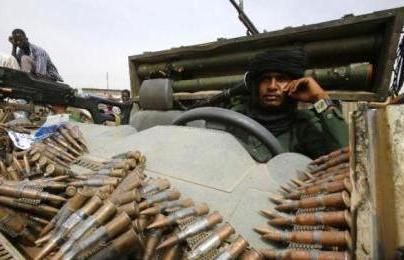U.S. needs new track for peace before to discard Sudan’s sanctions: expert
June 23, 2017 (KHARTOUM) – Omer Ismail, a Senior Policy Advisor at the Enough Project, said there is a need to define a new track for peace and human rights in Sudan before to decide on the definitive lift of sanctions on Sudan which is expected on 12 July.

The report titled “The July Deadline Won’t Work: Why the U.S. needs to delay the decision on Sudan sanctions,” questions the progress made by Sudan’s government on the “five tracks” agreed with Obama administration last year. Particularly it casts doubt on Khartoum’s commitment to humanitarian access and a cessation of hostilities.
“Equally if not more important is what comes after that decision is made,” he said in a written responses to a number of questions by Sudan Tribune.
“There is a need for a new track of engagement focused on peace and human rights that should be paired with new financial pressures as a way to address the core issues driving violence and repression in Sudan,” he further stressed.
On 13 January, former President Barack Obama eased the 19-year economic and trade sanctions on Sudan. The decision came as a response to the collaboration of the Sudanese government on various issues including the fight against terrorism.
Also, Obama said the permanent lift would be based on an assessment to five tracks agreed by the two countries in July. The five matters: cooperation on counter-terrorism; addressing the LRA threat; ending hostilities in the Two Areas and Darfur; improving humanitarian access; and ending negative interference in South Sudan.
The report of Enough Project coincided with a call by International Crisis Group (ICG) to lift sanction on Sudan considering that Washington has other economic and political tools to bring Khartoum to work on the files of peace and human rights.
The ICG stressed that a decision to not repeal the sanctions could strengthen the hardliners in Khartoum who “believe that Sudan should seek an outright military victory, especially at a time when it enjoys a serious advantage over isolated, weak and (in the case of the SPLM-N) internally divided armed groups”.
However, Ismail ruled out that the permanent revocation would encourage Khartoum to improve human rights, making the needed concessions and offer a realistic agreement to the armed groups.
“Khartoum cheered the decision to freeze the sanctions even before its permanent cancellation. Further, it has continued to behave as if it got a licence to pursue its policy of military solution in the conflict areas. In addition to a total disregard of human rights and contempt for the opponents with the suppression of freedoms,” he said.
(ST)
